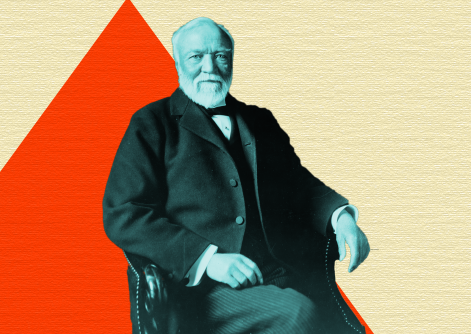We now have a President, a former community organizer, who does not value the charitable deduction. What he’s saying is that, left to its own devices, government can spend those dollars better than philanthropists.
That wasn’t Rush Limbaugh talking, or a Republican Member of Congress. No, this philosophical objection to governmental greed and arrogance issued from the lips of Emmett Carson, long prominent in philanthropy as a man of the left and a proud “catalyst for positive social change.”
Carson, a past board chair of the Council on Foundations and currently head of the Silicon Valley Community Foundation, uttered these words to the New York Times last week.
He no doubt appreciates the odd situation himself, because he made similar remarks at a Council on Foundations meeting a few weeks ago and declared:
If this was a Republican President, we would have been outraged. We are letting our progressive-leaning bias and perhaps affinity to a historic President get in the way of what’s best for our [sector].
Carson will get no argument from me, but I’m stunned to hear him talk this way. It’s not surprising for him to say, roughly, “Don’t do anything that could harm the revenue stream enjoyed by groups like us.” Everybody – left, right, and center – tells Washington that.
But it’s shocking to hear Carson directly challenge the idea that government can spend your dollars better than you can.
Admittedly, Carson has long been one of the most interesting members of the philanthropic community. In a sector notorious for banalities born of fear, he has courageously spoken his mind and warned of storm clouds that many prefer to ignore. But he is also the former head of the Ford Foundation’s worldwide grantmaking program on philanthropy and the nonprofit sector, and a man regularly praised by the left-wing National Committee for Responsive Philanthropy (NCRP) for his support of “advocacy” by nonprofits and for funding efforts that stress the “root causes” of poverty as interpreted by left-of-center ideology.
For instance, Carson and the Silicon Valley Community Foundation earlier this year joined leftish funders like the Ford, Tides, and Z. Smith Reynolds foundations in a new NCRP initiative, “Philanthropy’s Promise.” The initiative’s donors pledge “to dedicate the majority of their giving to benefit underserved communities and a substantial amount to strategies that address the root causes of social problems.” The “root causes” bit means the grantmakers will allocate at least 25 percent of their funds to “supporting advocacy, community organizing and civic engagement to promote equity, opportunity and justice.”
As Carson explained in a 2005 essay, “Through social justice grantmaking, community foundations have the ability to determine the cause of social inequities and to correct them at the source.” And so “community foundations, and foundations generally, have the capacity to fundamentally alter the power relationships that exist between citizens and their relationship to government, business and the nongovernmental sectors.” Foundations’ “social justice/public policy grantmaking efforts” can and should “change the underlying systems to improve the social outcomes for a particular group.”
Let me translate all of this advocacy/social justice/community organizing/etc. talk. It means, “Nonprofits, whether grantees or grantors, should pressure government at all levels to direct more tax dollars and other assistance in the direction of those grantees’ and grantors’ favorite victim groups, including to the nonprofits themselves.”
Carson identified reasons that foundations have a “reluctance to use their power” to push for this kind of social change, including “fear of retaliation from the government or business sectors,” as well as “allegiance” to the donors who created the philanthropy. Those donors have had the gall to be “successful in the private sector.” Such “wealthy individuals,” who are “successful and reaffirmed by the existing system and power relationships,” may on a good day be decent enough to “recognize a need for changes around access and participation in the existing system,” but they are unlikely to “be at the vanguard for wholesale changes to the entire system.”
Hence the need for those in philanthropy to dull their “allegiance” to the donors’ wishes, even if the donor has set up a donor-advised fund at a community foundation like the ones Carson has long run.
As for government, surely it should, in this view, jack up its takings in taxes from those wretches who suffer from shameful success in the private sector, because even if they give their money away, they will fail to march in the vanguard of "wholesale change."
Given his long devotion to this view of the world, in which government and social-change catalysts nobly toil to reverse all the injustice done by the private sector, one wonders how Mr. Carson suddenly realized it is better for citizens to be allowed to choose where to "spend" their own money by giving it to their preferred deductible causes?
FOOTNOTE: The best place for coverage of the fights now being waged over the charitable deduction is the Alliance for Charitable Reform. For a critique of Carson’s views, see William Schambra’s response to Carson’s proposal that government eliminate 70 percent of all foundations by outlawing foundations with assets under $1 million. The Philanthropica blog also responded to that proposal.





